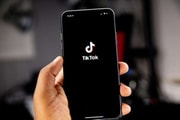What pushed consumers to boycott this major food company? The turning point revealed
- Replies 0
If you've recently found yourself pausing before reaching for your usual cereal or snack, you're not alone.
A nationwide boycott aimed to highlight concerns over corporate practices in the food industry.
At The GrayVine, we break down what triggered the backlash, which products were targeted, and what it all says about America’s evolving relationship with food giants.
The week-long boycott, held April 21 through April 28, was organized by the People’s Union USA and led by activist John Schwarz.
Their message was clear: General Mills is emblematic of what critics see as the worst of modern food industry practices.
For many participants, this was about more than cereal—it was a stand against what they perceive as a rigged and unaccountable food system.

General Mills owns a wide portfolio of brands that reach deep into American households. Products on the boycott list included:
1. Health and Nutrition Concerns
Critics argue that General Mills contributes to declining public health through products that are heavily processed, high in sugar, and low in nutritional value—especially when healthier options are priced out of reach for many families.
2. Lack of Ingredient Transparency
The company has a history of lobbying against mandatory GMO labeling. Activists argue that consumers deserve clear, honest labeling about what's in their food.
Also read: Are your favorite stores on the boycott list this April 18?
3. Price Increases
As food prices soar, General Mills has been accused of pushing prices higher than necessary, drawing public ire for prioritizing profit over affordability.
4. Market Control
With such a massive share of shelf space in major retailers, General Mills makes it difficult for smaller, local, or ethical brands to gain traction.
5. Community Accountability
Organizers claim the company is failing to reinvest in the workers, farmers, and communities that help fuel its profits—raising questions about equity and corporate responsibility.
Also read: The power of the purse: What’s happening with Nestlé, Target, and Amazon?
The effectiveness of boycotts can vary significantly, often depending on various factors. While some boycotts may fizzle out quickly, others have managed to produce meaningful consequences.
For instance, Bud Light experienced a notable decline in sales due to consumer backlash in 2023, demonstrating how quickly public sentiment can impact a brand's bottom line.
Source: theonecalledjai / Instagram
Similarly, Target was compelled to make significant adjustments to its in-store marketing strategy after facing similar pressure from consumers.
Even short-term economic disruptions, such as coordinated "spending freezes," can effectively capture a corporation's attention, particularly when there's a noticeable shift in public opinion.
Read next: You might be surprised which stores are on the boycott radar next—here’s why

Have you been boycotting General Mills? Are you concerned about the quality or cost of your groceries? Have tips for finding better food brands? Let’s talk about it. Scroll down to the comments and share your story, your stance, or your questions.
A nationwide boycott aimed to highlight concerns over corporate practices in the food industry.
At The GrayVine, we break down what triggered the backlash, which products were targeted, and what it all says about America’s evolving relationship with food giants.
The week-long boycott, held April 21 through April 28, was organized by the People’s Union USA and led by activist John Schwarz.
Their message was clear: General Mills is emblematic of what critics see as the worst of modern food industry practices.
For many participants, this was about more than cereal—it was a stand against what they perceive as a rigged and unaccountable food system.

A nationwide boycott aimed to highlight concerns over corporate practices in the food industry. Image source: Etienne Girardet / Unsplash
General Mills owns a wide portfolio of brands that reach deep into American households. Products on the boycott list included:
- Cereals: Cascadian Farm, Cheerios, Chex, Cinnamon Toast Crunch, Cocoa Puffs, Cookie Crisp, Count Chocula, Golden Grahams, Kix, Lucky Charms, Raisin Nut Bran, Reese's Puffs, Total, Trix and Wheaties
- Baking: Betty Crocker, Pillsbury, Gold Medal, Bisquick, Autumn's Gold
- Snacks: Nature Valley, Annie’s (organic snacks), EPIC, Larabar, Chex Mix, Dunkaroos, Fiber One, Gardetto's
- Yogurt: Yoplait, Oui, :ratio
- Ice Cream: Häagen-Dazs
- Pet Food: Blue Buffalo
- Other Brands: Annie's (organic), Old El Paso, Totino's, Muir Glen (organic), Progresso (soups)
1. Health and Nutrition Concerns
Critics argue that General Mills contributes to declining public health through products that are heavily processed, high in sugar, and low in nutritional value—especially when healthier options are priced out of reach for many families.
2. Lack of Ingredient Transparency
The company has a history of lobbying against mandatory GMO labeling. Activists argue that consumers deserve clear, honest labeling about what's in their food.
Also read: Are your favorite stores on the boycott list this April 18?
3. Price Increases
As food prices soar, General Mills has been accused of pushing prices higher than necessary, drawing public ire for prioritizing profit over affordability.
4. Market Control
With such a massive share of shelf space in major retailers, General Mills makes it difficult for smaller, local, or ethical brands to gain traction.
5. Community Accountability
Organizers claim the company is failing to reinvest in the workers, farmers, and communities that help fuel its profits—raising questions about equity and corporate responsibility.
Also read: The power of the purse: What’s happening with Nestlé, Target, and Amazon?
The effectiveness of boycotts can vary significantly, often depending on various factors. While some boycotts may fizzle out quickly, others have managed to produce meaningful consequences.
For instance, Bud Light experienced a notable decline in sales due to consumer backlash in 2023, demonstrating how quickly public sentiment can impact a brand's bottom line.
Source: theonecalledjai / Instagram
Similarly, Target was compelled to make significant adjustments to its in-store marketing strategy after facing similar pressure from consumers.
Even short-term economic disruptions, such as coordinated "spending freezes," can effectively capture a corporation's attention, particularly when there's a noticeable shift in public opinion.
Read next: You might be surprised which stores are on the boycott radar next—here’s why
Key Takeaways
- A national boycott of General Mills ran from April 21–28, organized by People’s Union USA.
- Protesters cited concerns over unhealthy ingredients, high prices, lobbying against GMO transparency, and lack of local reinvestment.
- Dozens of brands under the General Mills umbrella were affected, including Cheerios, Pillsbury, Yoplait, and Blue Buffalo.
- While the boycott’s long-term effects remain to be seen, recent history shows public pressure can move corporate giants to change course.






